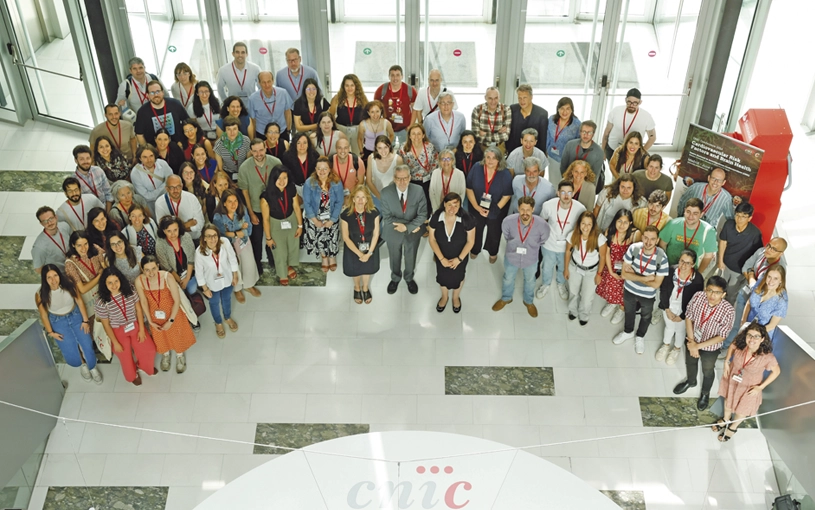CNIC Conference 2024. Cardiovascular risk factors And brain health

There is increasing scientific evidence supporting the idea that a relationship exists between cardiovascular health and cognitive deterioration in older people. Certain studies also highlight the role of cardiovascular diseases and their risk factors as coadjuvant in the expression of certain types of dementia, mainly Alzheimer’s, which was already described as a vascular dysfunction by Alois Alzheimer in his first report on the disease.
The 2024 CNIC Conference discussed this relationship in ‘Cardiovascular Risk Factors and Brain Health’ organized by Valentín Fuster, General Director of CNIC; María Ángeles Moro, Head of CNIC’s Neurovascular Pathophysiology Laboratory; Marta Cortés Canteli, CNIC / FJD-Health Research Institutes, and Costantino Iadecola, Director of the Feil Family Brain and Mind Research Institute of Weill Cornell Medical College.
The CNIC Conference is the result of the Severo Ochoa Programme: Cardiovascular Risk Factors and Health, designed to tackle the impact of cardiovascular risk factors on cognitive deterioration and dementia. “The initiative arose from the need to pay more attention to vascular abnormalities in the study of dementia, a field hitherto dominated by research from a neurobiological perspective,” says María Ángeles Moro.
The conference highlighted the importance of vascular factors in signs of dementia, which often develops at an advanced age, whereas its underlying causes can begin to manifest a lot earlier. “This interval of time offers a crucial opportunity to intervene and preserve brain health, avoiding damage to the neural substrates responsible for cognition, thus preventing dementia.” Dr Moro commented.
Marta Cortés Canteli points out that neurodegenerative diseases have traditionally been considered as exclusively related with the brain. However, recent evidence suggests the brain’s blood vessels play a significant role. “We have over 500 km of brain capillaries and any chronic abnormality in these vessels can have a considerable impact on brain health,” she clarifies.
The conference assembled experts from all over the world who are working to bring the brain and vascular fields closer for a better understanding of how to treat, prevent and even cure neurodegenerative diseases.
Dr Cortés Canteli underscores the need for an open mind about the multi-factor nature of these diseases. “For some patients, vascular damage can come before deterioration of the brain, whereas for others the opposite is true. It is essential to acknowledge that these processes can coexist and be interrelated.”
The conference also highlighted the importance of controlling known cardiovascular risk factors to prevent cognitive deterioration. “Controlling these factors is essential, and we know how to do it” adds Dr Valentín Fuster













